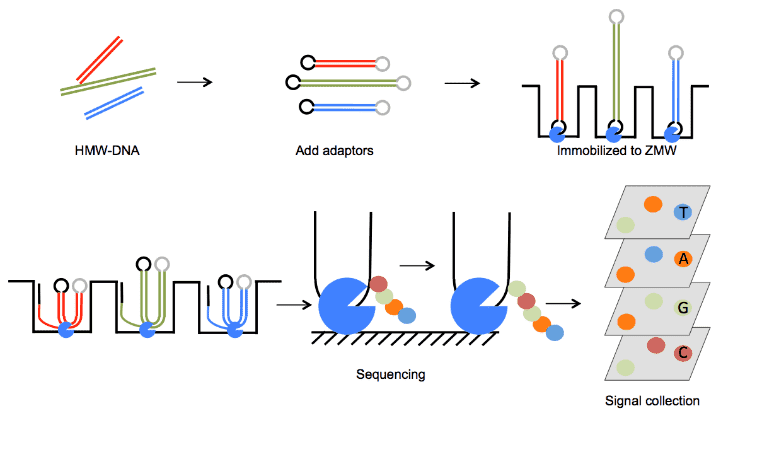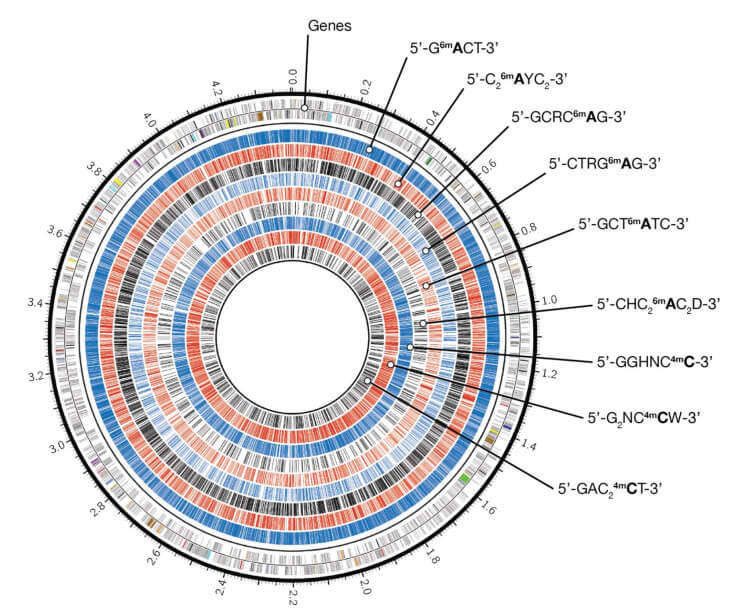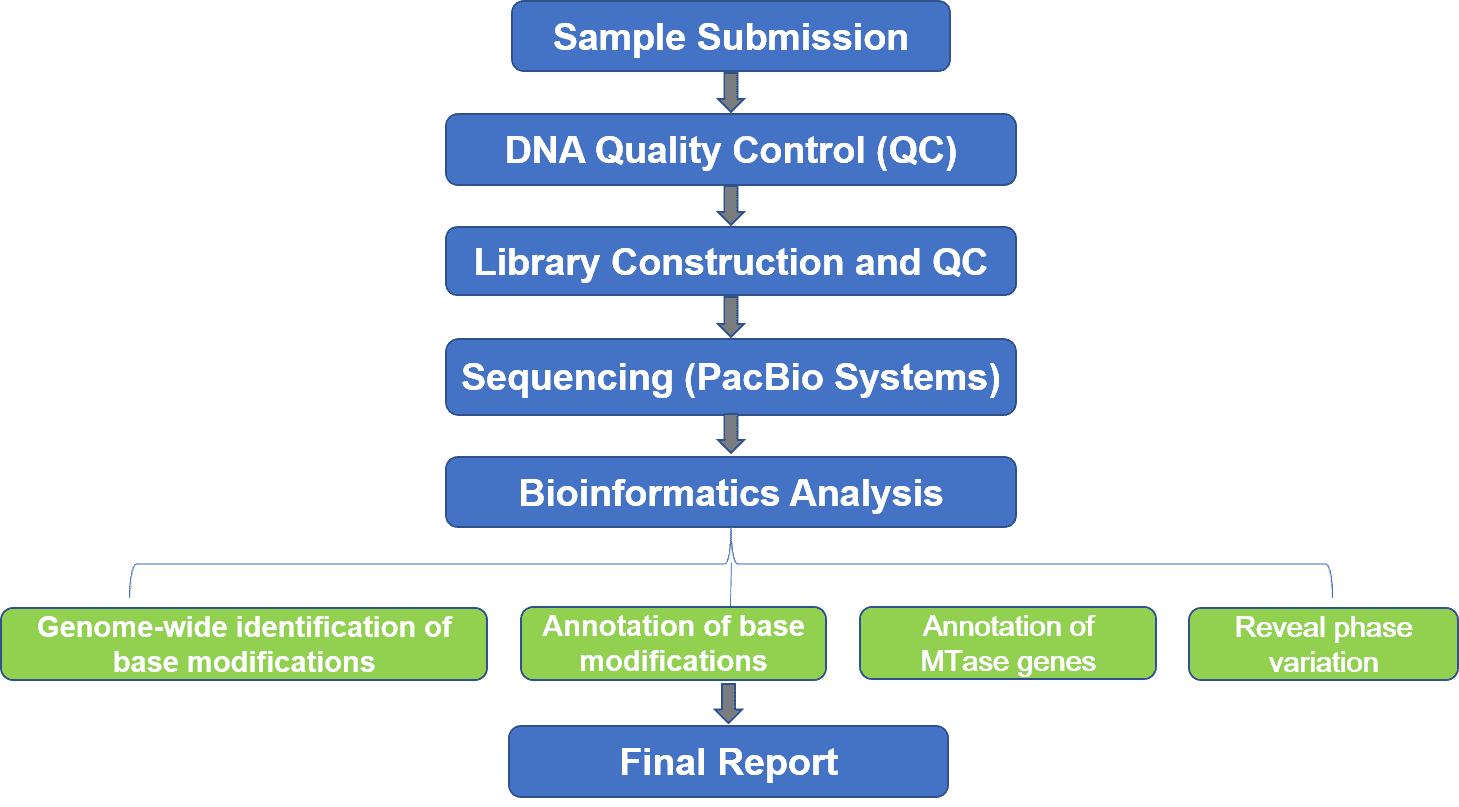
Microbial genomes contain a variety of base modifications, most of which are methylations occurring at adenine or cytosine residues. DNA methylation plays an important role in microbial defense against foreign DNA. During SMRT sequencing, DNA polymerases catalyze the incorporation of fluorescently labeled nucleotides into complementary nucleic acid strands. The arrival times and durations of the resulting fluorescence pulses yield information about polymerase kinetics and enable us to detect DNA modifications including 4-methylcytosine (m4C), 6-methyladenosine (m6A), 5-hydroxymethylcytosine (5hmC), and 5-methylcytosine (m5C), by measuring the variation in the polymerase kinetics. We also provide Nanopore-based epigenomics service for microbial epigenomics studies.

In addition to the detection of DNA methylation, PacBio SMRT sequencing also allows us to reveal phase variation of restriction-modification (R-M) genes that regulate batteries of genes involved in pathogenesis, host adaption, and antibiotic resistance. Not only driving the bacterial evolution by increasing C-T mutations and double-strand breaks, the R-M systems can also alter the transcription of genes involved in virulence, host adaption, pathogenicity, and antibiotic resistance. SMRT-based microbial epigenomics can be used to understand the pattern and function of DNA methylation, identify targets for therapeutic treatment, and reveal phase variation of R-M genes. It can be used to study cell cycle control and DNA repair, developmental biology, and cancer research.







